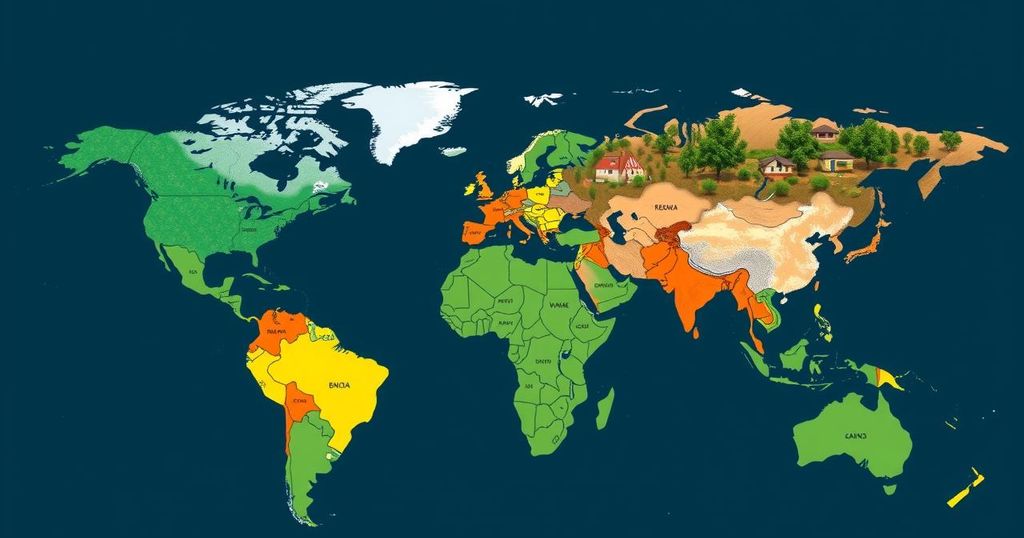Wealthy Nations Begin Compensating Developing Countries for Climate Damage

Richer countries are starting to provide financial compensation to poorer nations for climate change-related damages. Cyclone Freddy in Malawi highlighted the urgent need for such funding, leading to the introduction of loss and damage compensation programs. Notably, Scotland spearheaded efforts in this area, and during COP29, discussions are underway regarding the extent of funding owed to developing nations.
Cyclone Freddy, an unprecedented tropical cyclone, devastated southern Malawi in 2023, flooding homes and displacing thousands, including Christopher Bingala and his six children. Fortunately, Bingala received a payment of approximately $750, enabling him to construct a new home after losing everything. This payment is among the early instances of a novel funding initiative called “loss and damage” compensation, which aims to assist low-income countries disproportionately affected by climate change, despite their minimal contribution to global pollution.
In response to the increasing severity of natural disasters, wealthy nations have pledged around $720 million in funding towards this initiative. This financial support is crucial as low-income countries prepare for worsening climate impacts, which experts warn will still be insufficient. At the ongoing COP29 climate summit in Baku, negotiations are focused on determining the scale of financial obligations owed to developing nations, amidst discussions surrounding broader climate finance reforms that encompass loans and investments.
The financial assistance that Bingala received came from Scotland, which recently became the first country to allocate funds specifically for loss and damage. Organizations such as GiveDirectly, which awarded similar payments to approximately 2,700 families in Malawi, play a significant role in distributing these funds. The majority of recipients utilized their grants to rebuild homes or invest in essential agricultural resources, thereby enhancing their resilience against future disasters.
The need for loss and damage funding continues to grow as developing countries contend with escalating incidents of severe weather, all while possessing limited financial resources. Prime Minister Philip Davis of the Commonwealth of the Bahamas indicated that climate change has significantly increased national debt in his country, making recovery efforts even more challenging. Given these circumstances, it is imperative for wealthy nations to recognize their responsibility and contribute effectively to these funds to mitigate the impending humanitarian crises.
The topic of climate change and its disproportionately severe impacts on low-income countries is critical in the global discourse on environmental sustainability and equity. As climate events intensify due to global warming, wealthier nations have begun to acknowledge their historical responsibility for carbon emissions and pollution. The need for a structured funding mechanism to compensate the least developed nations for climate-related damages has emerged as a central theme in international climate negotiations, particularly highlighted at forums such as COP29. The establishment of loss and damage funds aims to provide financial assistance and ensure that vulnerable populations can recover and rebuild amidst the increasing frequency of natural disasters.
In summary, the establishment of loss and damage compensation funding offers a hopeful avenue for vulnerable countries severely impacted by climate change. As exemplified by the experience of Christopher Bingala and many others, financial assistance can enable recovery and enhance resilience. Nevertheless, with growing demands for such funding, it is essential that wealthier countries step up their commitments to ensure that effective support reaches those in urgent need, thereby addressing the moral and ethical responsibilities associated with climate damages.
Original Source: www.wprl.org






